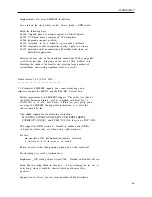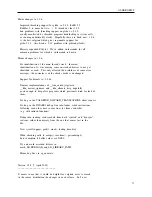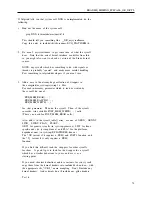
OLDER NEWS
Despite this being a snapshot of the CVS head, it is believed to be
quite stable -- at least as stable as 1.9.6 or 1.0.4, if not more so
-- and therefore suitable for widespread use.
Please let us know asap
if it causes problems for you.
Two reasons for releasing a snapshot now are:
- It’s been a while since 1.9.6, and this snapshot fixes
various problems that 1.9.6 has with threaded programs
on glibc-2.3.X based systems.
- So as to make available improvements in the 2.0 line.
Major changes in 20030716, as compared to 1.9.6:
- More fixes to threading support on glibc-2.3.1 and 2.3.2-based
systems (SuSE 8.2, Red Hat 9).
If you have had problems
with inconsistent/illogical behaviour of errno, h_errno or the DNS
resolver functions in threaded programs, 20030716 should improve
matters.
This snapshot seems stable enough to run OpenOffice.org
1.1rc on Red Hat 7.3, SuSE 8.2 and Red Hat 9, and that’s a big
threaded app if ever I saw one.
- Automatic generation of suppression records; you no longer
need to write them by hand.
Use --gen-suppressions=yes.
- strcpy/memcpy/etc check their arguments for overlaps, when
running with the Memcheck or Addrcheck skins.
- malloc_usable_size() is now supported.
- new client requests:
- VALGRIND_COUNT_ERRORS, VALGRIND_COUNT_LEAKS:
useful with regression testing
- VALGRIND_NON_SIMD_CALL[0123]: for running arbitrary functions
on real CPU (use with caution!)
- The GDB attach mechanism is more flexible.
Allow the GDB to
be run to be specified by --gdb-path=/path/to/gdb, and specify
which file descriptor V will read its input from with
--input-fd=<number>.
- Cachegrind gives more accurate results (wasn’t tracking instructions in
malloc() and friends previously, is now).
- Complete support for the MMX instruction set.
- Partial support for the SSE and SSE2 instruction sets.
Work for this
is ongoing.
About half the SSE/SSE2 instructions are done, so
some SSE based programs may work.
Currently you need to specify
--skin=addrcheck.
Basically not suitable for real use yet.
- Significant speedups (10%-20%) for standard memory checking.
69
















































